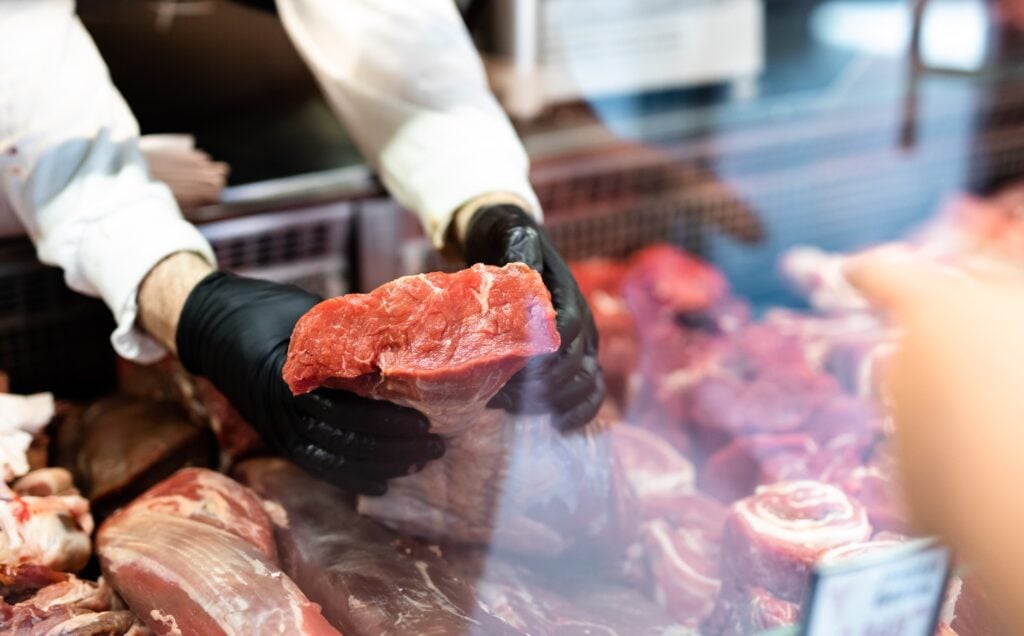An investigation conducted by the Guardian and Lighthouse Reports has seemingly uncovered a prolific UK tax avoidance scheme involving two major meat production companies.
Anglo Beef Processors UK (ABP) and Pilgrim’s Pride Corporation (PPC)—the latter is owned by the world’s largest meat producer, JBS—are both named. They stand accused of avoiding paying tax on more than £160 million in revenue.
While complex loopholes appear to have been exploited, neither organization has participated in illegal activity.
Critics maintain that when large corporations fail to pay their share of taxes, this leads to UK citizens having to make up the shortfall. This places extra financial strain on the population. This at a time when, according to reports, the economy may be moving closer to recession. It also arguably demonstrates a lack of good corporate citizenship.
Alex Cobham, CEO of the Tax Justice Network, told Plant Based News: “If major food companies are shunning their UK tax responsibilities at the same time as their customers here are facing a shocking rise in food insecurity, and while the UK government seems unable to fund the most crucial public services, it would be not just socially irresponsible but a cruelly anti-social act indeed.”
The Guardian reported that when approached for comment, both ABP and PPC claimed to be tax compliant.
How has tax been avoided?
ABP and PPC appear to have used their international presence to avoid tax. Both operate within the UK, plus either the Netherlands or Luxembourg. The latter two have significantly different tax laws than the former.
Each company appears to have engaged in complicated intra-company money lending, via overseas subsidiaries of themselves, to claim reduced tax liability in the UK.
For example, ABP UK took a loan from a company called Trojaan Investering, based in the Netherlands. It is a finance company, owned by the ABP Food Group and funded, at zero percent APR, by other ABP interests, all based in Jersey and Ireland.
Trojaan gave ABP UK £63 million in loans, which were repaid with five percent interest, thereby relieving the company of UK tax responsibilities. All of the money remains within the same overall organization: ABP Food Group.
PPC engaged in the same activities, repaying interest on large loans from its own subsidiary, Sandstone Holdings, based in Luxembourg.
Cobham noted: “Tax abuse by major companies is always anti-social, in the most literal sense. The failure to pay a fair share in tax, while benefiting from the market demand, the infrastructure, and the existence of a well-functioning state, is in direct opposition to the well-being of the society where the company is making its profits.”
Meat popularity in decline
The Guardian’s report comes as meat consumption in the UK is showing signs of slowing.
A study, published in The Lancet last year, confirms a drop in meat’s popularity.
Using survey data, the study suggests that daily meat intake has been reduced by 17.4 grams per capita, per day. In particular, respondents are eating less red and processed meat. White meat, including poultry, was shown to increase and fish remained the same. But overall, a significant reduction was identified over 11 years.
Germany is demonstrating a similar growing distaste for meat, with intake dropping by 12.3 percent since 2011. Plus, 51 percent of the population seemingly reduced their animal protein consumption by choice, in the last year.
In a recent Good Food Institute survey of Western European countries, motivations to lessen meat intake ranged from personal health concerns to animal welfare, and the climate crisis.
Animal agriculture is responsible for around 14.5 percent of all anthropogenic greenhouse gas emissions, but plant-based meat creates far fewer. Up to 95 percent less, according to research results published by Science Direct.
In a recent study by the University of Oxford, it was cited as the most beneficial product for the planet. It was ranked alongside 57,000 other items with researchers evaluating emissions, water, land use, and impact on soil quality. Plant-based meat came out on top.
More issues with meat
Tax evasion is just one issue linked to meat production. Alongside vast greenhouse gas emissions and rampant deforestation as consequences of industrial animal agriculture, it’s also linked with serious health concerns.
Recent studies have suggested that red and processed meats may heighten the risk of cancer. Meat consumers may also be more likely to suffer from heart disease, diabetes, and Crohn’s disease.






